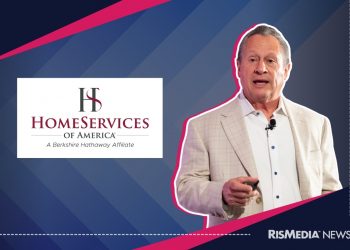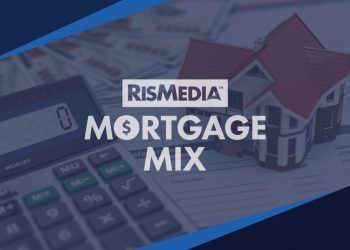The following information is provided by the Center for REALTOR® Development, with assistance from Lauren Hampton and the Podfly editorial team, and is a recap of Center for REALTOR® Development Podcast episode 18.
In the latest episode of our podcast, host Monica Neubauer had a really great conversation about mortgages and how to best work with lenders. She talked with Dan Green, CEO of Growella, an online publisher that helps Millennials do more with their money. Before Growella, Dan was founder of the popular mortgage blog The Mortgage Reports. Dan eventually sold the company, but The Mortgage Reports is still widely recognized as the top consumer-focused mortgage blog in the country. The site offers unbiased mortgage loan advice to first-time home buyers, seasoned homeowners, and real estate investors; and, has been informing its readers for more than a decade.
Monica first became aware of Dan while researching mortgage trends over the years to supplement her work with clients.
How can real estate agents work with lenders to help facilitate the process without giving advice on something they aren’t qualified experts? When Realtors®are working with mortgage lenders, both the Realtor®and the lender are working toward the same goal. The situation for each buyer will be different, but in the end, both parties want to do what’s best for the client.
It may be more likely you’re in a situation where you don’t know your client’s mortgage lender. It can be hard to put your faith in someone you don’t know, but we must remember that any mortgage lender who is serious about their business will hold each of their clients to the highest regard.
Proactive communication will help everybody be in the know more quickly and can pave the way for easier communication moving forward. It can prevent a lot of miscommunication and potential drama. Many lenders are using their open communication as a selling point to clients. This helps Realtors®, as well, and it’s important for Realtors®to respect the two-way channel of communication between themselves and the lender.
Education is one of the most important ways to reach and inform your clients. Younger buyers typically want the education but part of the challenge is having the benefit of experience. You can’t get everything online, and you need to talk to people who are experienced and who spend a lot of time researching.
As a Realtor®, it’s important to read and keep up with mortgage-related news so you can be aware of when your client may be missing a piece of information. In these instances, it’s important to refer your client to a lender, who can handle the details of the situation better than you can. “There is so much that goes into the mortgage that it’s become somewhat of an art form” says Dan.
The best thing real estate professionals can do to serve their clients is to get educated about financing. During the podcast interview, Dan offers a comprehensive overview of the type of financing available. Below are some highlights.
Conventional mortgagesare any mortgages that are backed (insured) by Fannie Mae or Freddie Mac. They make up about two-thirds of all loans. The “stereotypical” conventional mortgage borrow no longer exists, however. This is in contrast to FHA loans, which used to be thought of as a home affordability product, and used to have a stigma attached to it for several years, but no longer do in many cases. There are also VA loans, which are loans that are available to people who are active military or veterans. They are most well-known for being 100% mortgages (the average down payment is 2%). USDA loans(United States Department of Agriculture) are also 100% mortgages, and they offer lower interest rates as compared to other loan products. These are meant to promote home ownership in less densely populated areas.
These days, many borrowers can move interchangeably between these four types (conventional, FHA, VA, and USDA). You can’t necessarily know what’s best for your client without talking to a loan officer. Dan talks about some mortgage options that exist within these four categories, and the goal of the mortgage lender is to figure out which option is going to be best for that particular borrower for their specific home in this particular moment in time. “It is a constantly moving target, and we’re trying to find where, at any given point in time, a borrower fits best,” says Dan.
Jumbo loans are a subset of a larger group of products called portfolio loans. These are non-government supported loans because they do not conform to governmental requirements or limits. In these cases, the lender keeps the mortgage in their own portfolio. A “jumbo” loan is a loan that is too big to meet the government’s rules. There are various other mortgage programs that might meet government regulations, but for whatever reason the lender may still want to keep on its books. Dan also discusses a few very specific types of mortgages for medical professionals, teachers, and first responders within a community.
There are several other niche products with more narrow markets than the categories previously discussed. They might be the right product for a specific person, but it’s important to discuss with a loan officer who understands how the products work and whether they will really be beneficial for you or your clients.
Many states have organizations within the state that offer first-time borrower programs or other specialized programs. States try to promote home ownership within their state lines, and there are some quality programs out there. Many are trying to reach out to first-time home buyers. Many states also have down payment assistance programs. These programs are very beneficial and it is definitely worth researching which programs are available for the area your client is buying in.
The market has broad, overarching products from the government, and then individual products from different banks. It is a good idea to talk to two or more lenders, so you can get the best possible product and the best possible terms. It’s important for lenders to communicate those niche products because buyers need them! By talking to a mortgage lender early in the process, you set yourself to be in a position where you are in control of your options.
A key takeaway for real estate agents is that they shouldn’t necessarily be concerned with the interest rate that their client has. The lowest interest rate is not always going to yield the lowest cost. What you want to be looking for is the lowest overall cost. “Instead of encouraging your clients to shop around for lower rates, encourage your clients to shop around for the best fit,” encourages Dan. For a lot of people in specific circumstances, the zero closing cost mortgage is a really good option. The main job of Realtors®is to help get your clients to a good lender, who will present them with all the options. It is important to stay up to date on what’s happening, so you can be informed for your clients.
Center for REALTOR® Development’s monthly podcast focuses on education in the real estate industry. It addresses formal education programs (such as those from NAR) and informal sources of industry knowledge (such as peers and mentors). Its intended audiences include REALTORS®, real estate professionals, allied professions, educators, education providers, and consumers. To listen or subscribe, visit www.crdpodcast.com.
For more information, please visit RISMedia’s online learning portal from NAR’s Center for REALTOR® Development (CRD) and the Learning Library. Here, real estate professionals can sign up for online professional development courses, industry designations, certifications, CE credits, Code of Ethics programs and more. NAR’s CRD also offers monthly specials and important education updates. New users will need to register for an account.
For the latest real estate news and trends, bookmark RISMedia.com.











